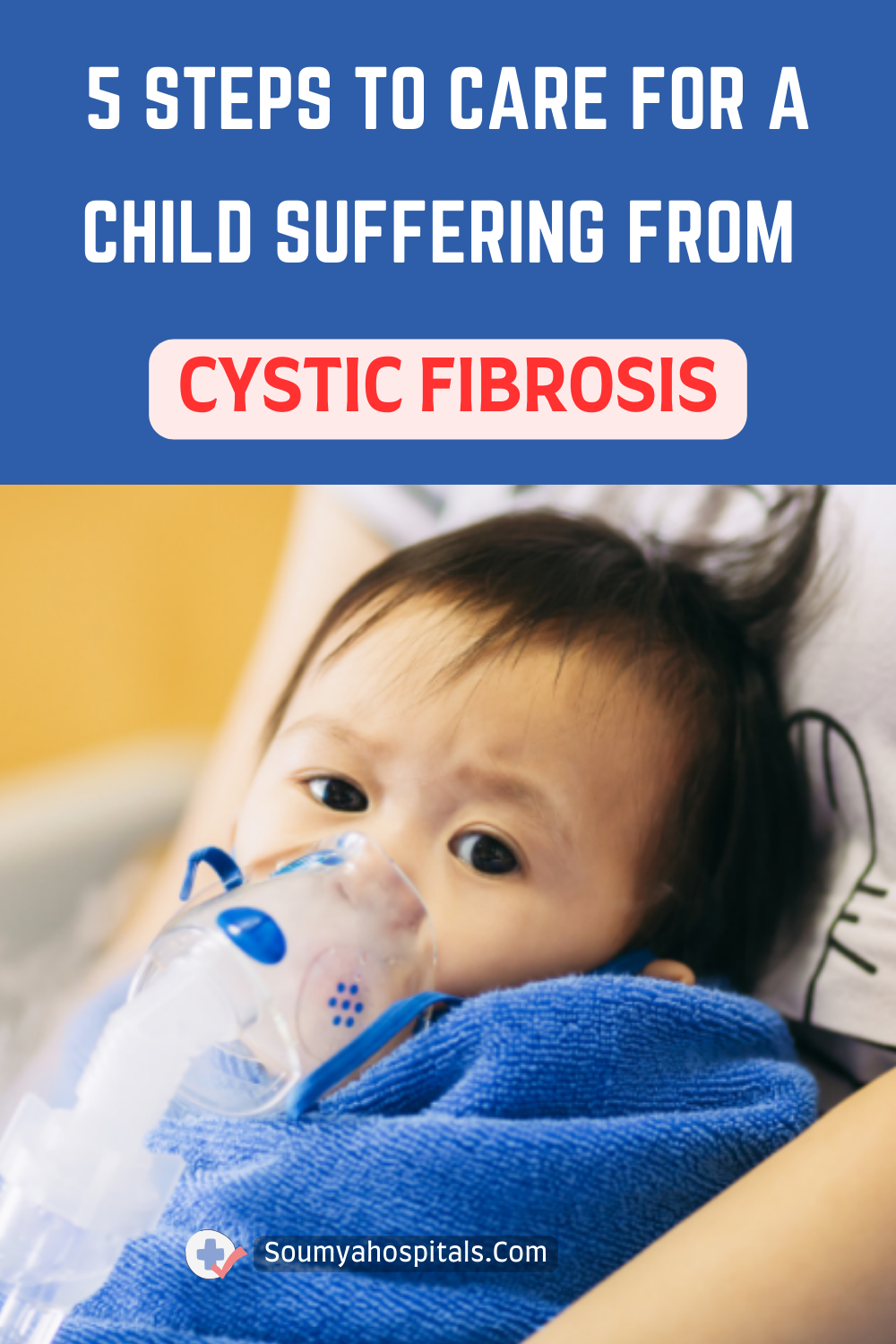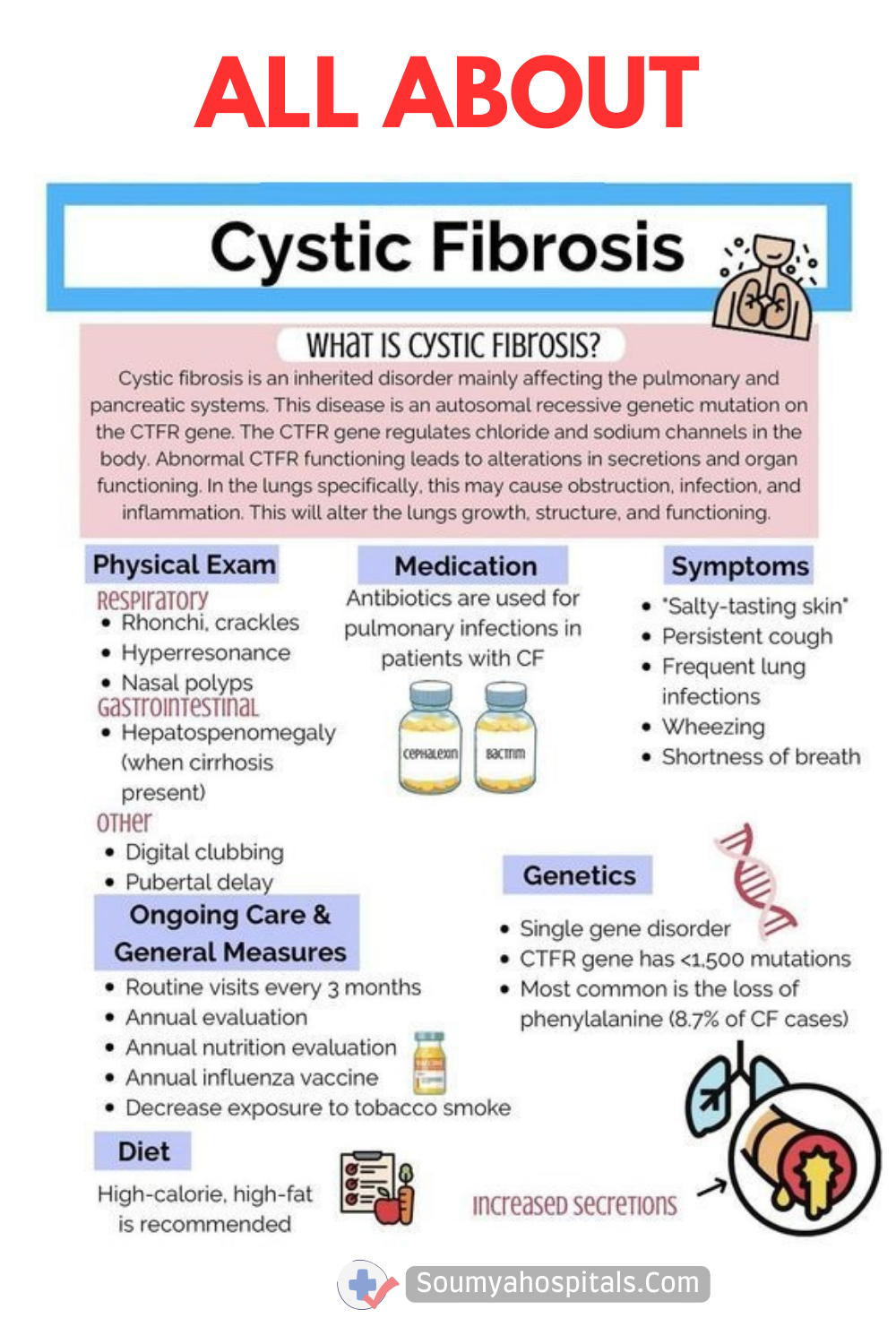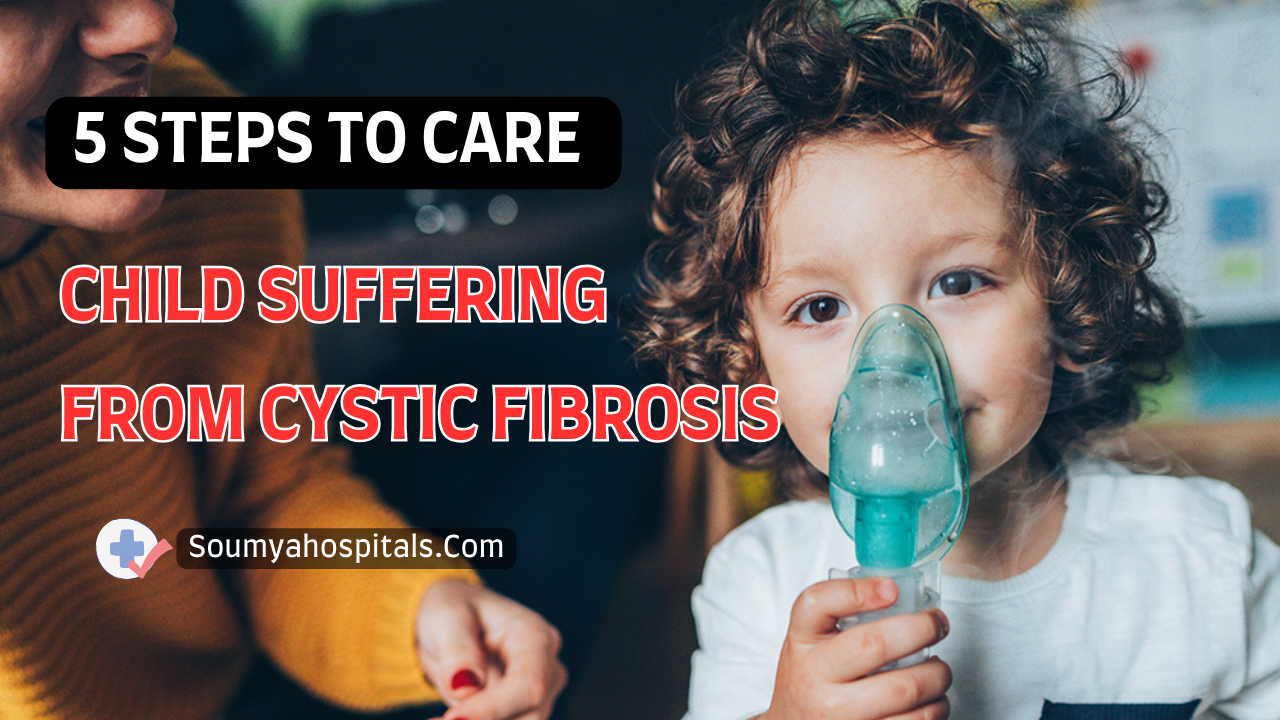Cystic Fibrosis is a genetic disease that is passed on to a child by both parents. It mainly causes breathing problems and infections in the lungs that finally leads to damaged lungs. The disease is caused because sodium chloride, commonly known as salt, cannot move between the body cells. This will cause heavy, thick mucous to collect in the body, especially in the lungs, clogging them. Parents with children suffering this condition should understand that the prognosis is getting better with advances in medical science. Thirty years ago, a child would succumb to the disease even before it was time to start school. Today, a lifespan of 30, 40 and even 50 years is very possible. To improve the quality and the length of life, cystic fibrosis needs early diagnosis, acceptance and consistent care to help your child on a difficult path. These are the five steps every parent should know about caring for a child with this condition.
Also Check: Pediatric: Cardiovascular NCLEX Questions
1. Screening Babies And Infants
In the United States, all babies are screened for CF but make sure you inquire with your doctor if your child is safe. The test for detection is an examination of the blood sample for immunoreactive trypsinogen (IRT). Some babies normally have a higher amount of IRT, so your pediatrician will use a sweat test to confirm the diagnosis. Medication is applied to a spot on your baby’s arm to make it sweat. The sweat is then examined for the quantity of salt. If the amount is higher than normal, the final test will be a genetic test taken from a blood sample to identify the mutated gene. 90% of children who do have the mutated gene are carriers and will not show any symptoms of the disease.

2. Frequent Follow-Ups With The Medical Team
Once a child has been diagnosed with cystic fibrosis, treatment and care will need to start. You will be trained to take care of your child and to watch out for symptoms that will need medical attention. The more frequent the check-ups the better it is for your child. While most doctors will ask you to come in for regular check-ups once every quarter, it’s always better to get them done every 2 months and to never skip an appointment.
3. Your Child Needs Collaborative Medical Care
Cystic fibrosis can affect many parts of the body and so your child should be under the care of specialists. The medical team should include a pulmonologist, a respiratory therapist who is skilled in clearing the airways, a nurse practitioner, a social worker and a dietitian. A dietitian is very important, since absorption of nutrients is affected in this disease and children need to have their diets monitored. Good nutrition means good growth and that is why advice from a dietitian is very important. A lot of new drugs that target genetic testing are being tried out frequently. These medications can relieve symptoms quite fast.
4. Vaccinations And Physical Therapy
Consult with your doctor about your child’s vaccination schedule because you need to protect your child from additional sickness. It’s also important that those in the family and others who are in frequent contact are given a flu shot every year. While not everyone can take the shot, reduce the risk by making family members take it. There are also daily physical therapy techniques that can improve your child’s quality of life. Cupping your hand and clapping on your child’s chest at least 4 times a day helps to loosen the mucus that has collected. Your child also needs to do breathing exercises to stay healthy.

5. Smooth Transition Into Adulthood
When your child grows into a young adult, they will want more independence. Loosening the reins will be hard especially since complications with lungs, digestive and musculoskeletal systems can increase with adulthood. This is also the time when your child will transition from pediatric care to adult care. The medical team that you have built a rapport with over the years will now have to be left back as your adult child’s needs change. This transition should ideally have both the teams together to share your child’s history and to take over the care.
